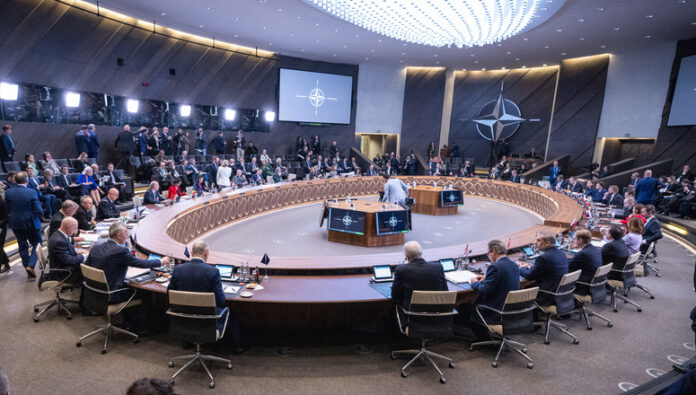NATO Secretary General Jens Stoltenberg unveiled a new proposal to set up a 100-billion-euro fund to for long term military support to Ukraine. The proposal received mixed response from NATO members, while Ukraine welcomed it even though it prefers aid in form of fresh money.
The fund should run for five years and it is part of Stoltenberg’s strategy to “ensure reliable and predictable security assistance to Ukraine for the long haul,” meaning less support in the short-term but more in the long one. So far, NATO focused more on non-lethal aid for Ukraine in order to not escalate tension with Russia, while individual members provided weapons and ammunition on a bilateral basis. According to the Secretary General, his plan will not influence NATO defencive structure, but rather it will just bolster its aid framework.
Another aspect of the fund is that it will shift direction on coordination of arms, ammunition and equipment supply, placing the alliance in a more direct role, taking over the role the US have had so far as part of the so-called Ramstein group. According to diplomats, NATO is planning to step in this role to prevent a potential diminished role of the US in case Donald Trump wins re-elections in November.
Despite Stoltenberg’s hopes, the plan seems to have drew a mixed consensus across European countries. Latvia and Germany spoke positively about it, with German Foreign Minister Annalena Baerbock calling it “right and important.”
However, Spain and Italy answered coldly, mainly due to financial concerns. Spanish Foreign Minister Jose Manuel Albares said that he and other colleagues are worried about possible duplicate aid efforts between bilateral, European Union and NATO levels. Italian Foreign Minister Antonio Tajani on the other hand was supportive of the plan, calling it “fascinating and interesting,” but would like to see how the money sent to Ukraine will be divided among members of the alliance: “even before promising Ukraine an exact figure, it’s best to evaluate and study and understand how, when and what can be done, who must do what.”
Unsurprisingly, Hungary was against the proposal, with Zoltan Kovacs, spokesperson of Foreign Minister Peter Szijjarto, writing on X that the foreign minister “firmly stated Hungary will not back any NATO proposals that might draw the alliance closer to war or shift it from a defensive to an offensive coalition.”
Stoltenberg wants a vote on the plan at the next summit of NATO leaders, planned for July. NATO’s decisions are made with a consensus among its now 32 members.

